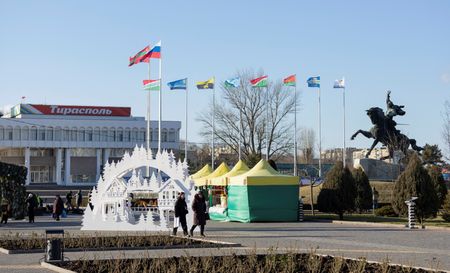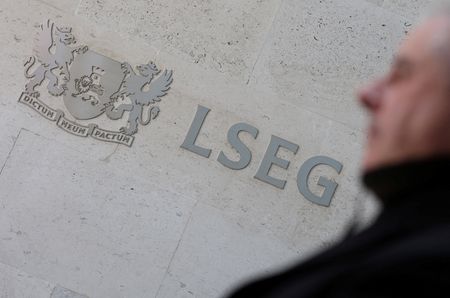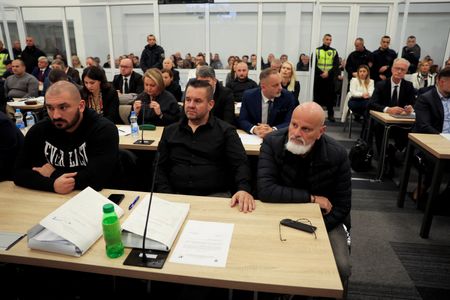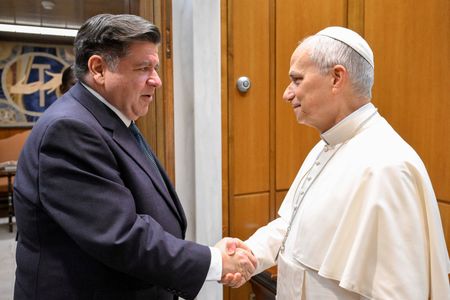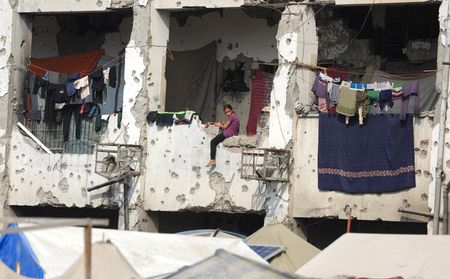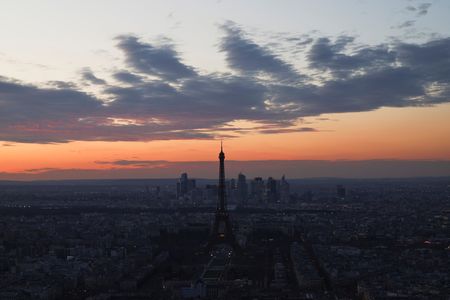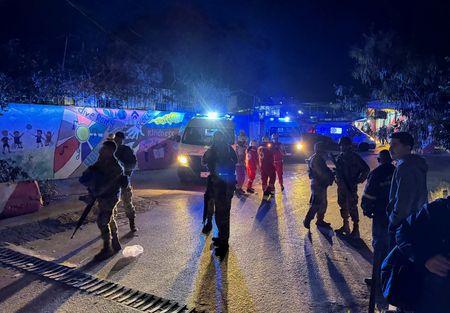(Reuters) -Authorities in Moldova’s separatist Transdniestria region said on Saturday that energy conservation measures had allowed them to ease restrictions caused by a halt to Russian gas supplies, with the duration of rolling blackouts to be further reduced.
Transdniestria’s pro-Russian leaders said via the region’s official Telegram channel that daily rolling blackouts would be reduced to three hours on Sunday from eight hours earlier this week, though on Sunday they said the cut-off time will be extended to five hours from Monday.
Moldova’s pro-European central government renewed its criticism of Russia, saying it caused the energy crisis and now wants to portray itself as the power that was coming to the separatist region’s rescue.
Transdniestria, which split from Moldova at the end of Soviet rule, has relied on Russian gas shipped through Ukraine. Authorities in Ukraine, locked in a 34-month conflict with Russia, refused to extend a transit deal into 2025.
Russian gas major Gazprom has said it will not send the gas to Moldova along alternative routes, citing what it describes as Moldovan arrears of $709 million. Moldova, which denounces Russia’s invasion of Ukraine, disputes that figure.
“With current super efficiencies in consumption, Transdniestria has enough gas until the end of January,” the Telegram channel quoted First Deputy Prime Minister Sergei Obolonik as saying.
NIGHT SHIFTS
Many factories have switched to night shifts, when the power grid is under less strain, but authorities said one plant, a cement manufacturer in the town of Rybnitsa, had closed down.
A steel mill of critical importance to the region also closed in the city.
Russian gas supplied to the separatist region powered a thermal plant which provided electricity both for Transdniestria and most of the needs of government-held regions.
Daniel Voda, press secretary of Moldova’s central government, said suggestions that Russia might relent and eventually send gas to Transdniestria did not alter Moscow’s responsibility for the energy crisis.
“Every time that Russia wants to show its might, it cuts off vital resources and turns people into hostages,” Voda told the media outlet Nokta.
“This is an experiment using people that shows that Moscow is not worried about residents’ comfort and security. … No one deserves to live in fear and in the cold.”
Moldova’s government has accused Russia of artificially creating the energy crisis to destabilise the country ahead of this summer’s parliamentary election. It has offered to help Transdniestria tackle the power shortages, but the separatist region’s leaders deny receiving any official proposals.
Moldovan President Maia Sandu has said Gazprom could supply gas to Transdniestria via an alternative route, the Turkstream pipeline through Turkey, Bulgaria and Romania.
Transdniestria fought a brief war against Moldovan government forces in 1992 and still hosts 1,500 Russian soldiers on the tiny territory that neighbours Ukraine.
(Reporting by Alexander Tanas; Writing by Ron Popeski; Editing by Will Dunham and David Holmes)

